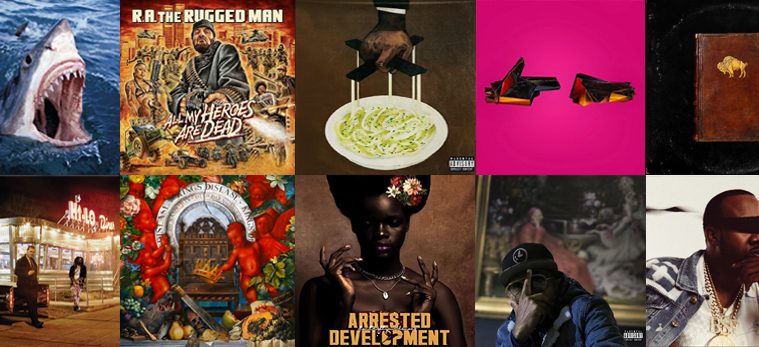2020 has had more ups & downs than a roller coaster. Between an ongoing pandemic, largely unexpected celebrity deaths, and divisive politics, one would be lying if they stated that there HASN’T been a change in the status quo. With new limitations set, people look for something they can have control over. For some, it could be exercising their bodies. For some others, it could be growing a personal collection of items. For me, I’ve taken several avenues of gaining control, and keeping myself occupied with music is one of them. This is my 11th annual top 10 hip-hop albums review and every year around this time, I reflect on the year and ponder whether or not I’m too old to keep listening to hip-hop. But every year, that very thought gets dismissed more and more quickly. I’m secure in my likes and dislikes, even more so due to the knowledge that I don’t have to pretend. That said (or written), here are the top 10 hip-hop albums of 2020 that I liked. As always, feel free to critique, praise, mock, argue, and more importantly, discuss.

10.)
Artists: Conway the Machine & The Alchemist
Album Title: LULU
Label: Griselda Records/ALC Records/EMPIRE
Release Date: March 30th, 2020
Producers: The Alchemist
This was actually one of the strongest albums I’ve heard all year, and the main reason it doesn’t have a higher placement on this list is because of its EP length. I technically could’ve circumvented that by listing the ALC edition of the album which features the instrumentals, but I’ll go with the version that was released first. Born out of the union of Griselda’s Conway the Machine and veteran producer The Alchemist, “LULU” is an east coast gangsta rap EP album through-and-through which was inspired (both titular and thematically) by the 2002 feature film, “Paid In Full”. Every track is a reference to the film and Al even spliced in movie dialogue samples for added effect. Though Conway released several projects in 2020, it was this album which made the biggest splash.
If an east coast trap house had theme music, “LULU” would be it. The Alchemist has an almost intuitive understanding of the artists for whom he provides beats, and this is particularly true of his hardcore gangsta rap clientele. Even when his beats are of a minimal sound, there’s still an unmistakable spark of grit in them. He has a reputation for flipping unusual samples into street bangers and “LULU” is tailor-made for the streets. Conway’s consistent with his multis and wordplay, and brings a wealth of street knowledge gained from illicit activity. I mean, this album is damn near an instruction manual for it. The single “Calvin” is the best track on the album as the beat is low-key menacing, Conway’s threatening boasts are quotable, his flow was different and better, and lastly, the accompanying video has him practically doing a two-step with a dead body on his shoulder.
The guest stars on this 7-track EP are kept low. Cormega makes an appearance on “They Got Sonny” while Cali’s ScHoolboy Q provides an assist on the EP’s first single “Shoot Sideways”. Interestingly enough, he doesn’t have Westside Gunn or Benny the Butcher featured at all. All in all, Conway the Machine has been the most consistent Griselda member of 2020, having released the first project of the year since the label’s group album in late 2019. Despite the album being a “Paid In Full” homage, the cover isn’t. The image on the EP’s cover is that of a great white shark baring its teeth, as though to say, “my weapons are sharpened and I’m ready for whatever”. That pretty much describes Conway’s career post-shooting. But even with his efficiency and that of his weapons, he recognizes that there’s always kinks to work out in both. “LULU” is an indication of those improvements.
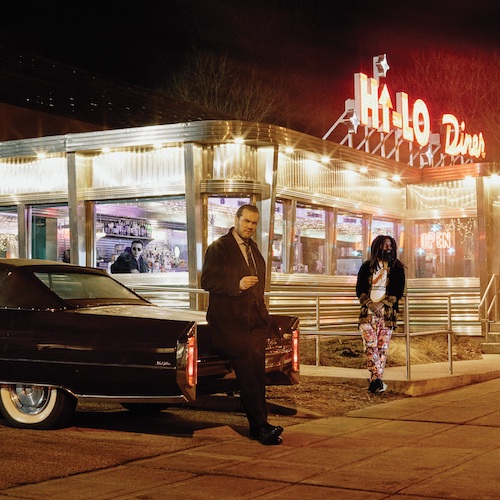
9.)
Artists: Felt (Murs x Slug)
Album Title: Felt 4 U
Label: Rhymesayers Entertainment
Release Date: August 7th, 2020
Producers: Ant
It’s been over a decade since the last Felt album, “Felt 3: A Tribute to Rosie Perez”. The Felt album titles often have a tongue-in-cheek tribute to a female sex symbol that isn’t evident in the music. Connecting the west and the midwest, Murs and Slug have made their careers by simply rapping about what they know. True, they tend to have a poetic and imaginative bent at times, but they’re not abstract rappers nor are they hardcore emcees. They’re hip-hop artists who share a working-class ethic, a sly (sometimes bitter) sense of humor, and a dedication to their craft. Often, the narratives they spin are detailed, but not cinematic or over-the-top. Their stories lack a big twist at the end, but are relatable tales, nonetheless. The duo’s fourth album, “Felt 4 U”, is entirely produced by a returning Ant this time (he produced their second album). You could argue that this makes it an Atmosphere album plus Murs, but “Felt 4 U” altogether was a better album than Atmosphere’s recent “The Day Before Halloween” album.
Ant’s beats are a mix of synth and samples, but the result is an inner-city blues sound that goes right with both emcees. The chemistry between both rappers has always been present, but more so with the music since Ant is the one producer who understands their styles. The chemistry of all three men is evident on “Trees”. Ant provides a funky beat with deep bass, DJ record scratching, and a piano riff while Slug and Murs tag-team multi-syllable bars: “Van glorious, black watch on my wrist / If you don’t know the time, I’mma tell you with my fist / Power to the people / Sour to the diesel / And I don’t even smoke that flower, but I need to”. No stranger to humor, both emcees provide relatable anecdotes of easing boredom and relieving tensions on “Through the Night”.
At this point, you could consider this brand of hip-hop to be under the banner of “grown man rap”. Slug and Murs aren’t the emcees they were at the onset of Felt. They’re both over 40 now with a wealth of experience to rap about. A testament to just how old school they are is the meta-humor of the track “Alexander F’real”, a reference to R&B singer Alexander O’Neal, whose 1985 debut album cover is subject to a homage on the cover of “Felt 4 U”. Also, they make room for some guest emcees on the banger “Hologram”, featuring verses from former Felt producers The Grouch and Aesop Rock. The closer, “Borboleta”, attacks a frequent topic of the men: Relationships. While not a tribute to any female celebrity, “Felt 4 U” succeeds as it’s a homage this time to the fans.
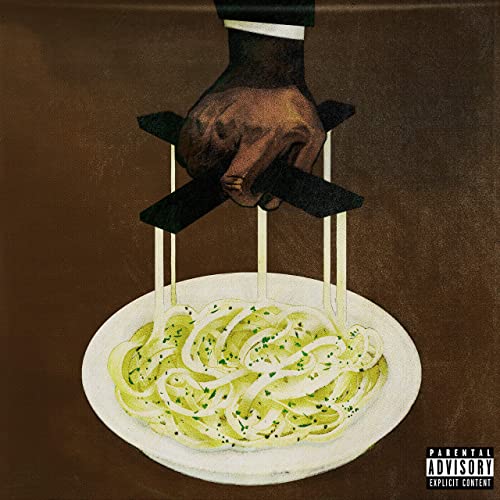
8.)
Artists: Freddie Gibbs & The Alchemist
Album Title: Alfredo
Label: ESGN/ALC/EMPIRE Records
Release Date: May 29th, 2020
Producers: The Alchemist
Freddie Gibbs is no stranger to coke rhymes and the Alchemist is no stranger to providing sonic pavement for said rhymes to be laid over. The Gary, Indiana emcee had started to garner attention 6 years prior with his partnership with Madlib in creating “Piñata”, which Gibbs himself described as “gangster Blaxploitation on wax”. Meanwhile, the Alchemist stayed busy, creating the scores for crime narratives from rappers ranging from Prodigy to Griselda. Considering his choice of topics, I was surprised the album wasn’t named after something related to or connected with drug dealing. Instead, it’s a portmanteau of both artists’ names. The title and the actual painting of a plate of alfredo on the cover brings to mind MF Doom’s “MM…Food” album, but the saving grace for the gangster motif is the inclusion of the infamous marionettist’s hand logo from “The Godfather” franchise.
The album is only 10 tracks long, but delivers quite a punch. The first single, “1985”, is built on a looped guitar riff sample, but Gibbs comes with it by packing all the coke lines he can inside a relentless flow. The guest rappers he brought in for assists are appropriate, though considering the kind of rappers enlisted, I’d say Tyler, the Creator is the only odd man out. On “Scottie Beam”, Gangsta Gibbs raps over a smooth R&B sample with Rick Ross. The best feature is from Benny the Butcher on “Frank Lucas”. Over a deep bass with a dark groove, both emcees trade cocaine rhymes, but Benny kills it when he spits, “New loft downtown and this view was hard to find / Sold lines to abusers, now abuse y’all with lines” (damn!). On “Something to Rap About”, Gibbs’s hardened rhymes are juxtaposed with Tyler, the Creator’s softer laid-back themes.
Looking back, on “Piñata”, Gibbs seemed more like a street thug working his way up in lucrative drug trade. On “Alfredo”, it sounds more like he made it to the top and now he’s telling stories about his rise. It’s like how Biggie Smalls went from a street hoodlum/stick-up kid on “Ready to Die”, but transitioned to the dapper Frank White on “Life After Death”. Another thing both Gibbs albums have in common in terms of production is the tendency to incorporate movie or interview dialogue into the beats at either the beginning or the end of a track. it gives it more of a cinematic feel and informs the listener of what they’re in-store for. “Alfredo” is another feather in the caps of the veteran producer and the emcee playing the part of the unapologetic drug dealer adept at turning coke rhymes into narratives or concepts.
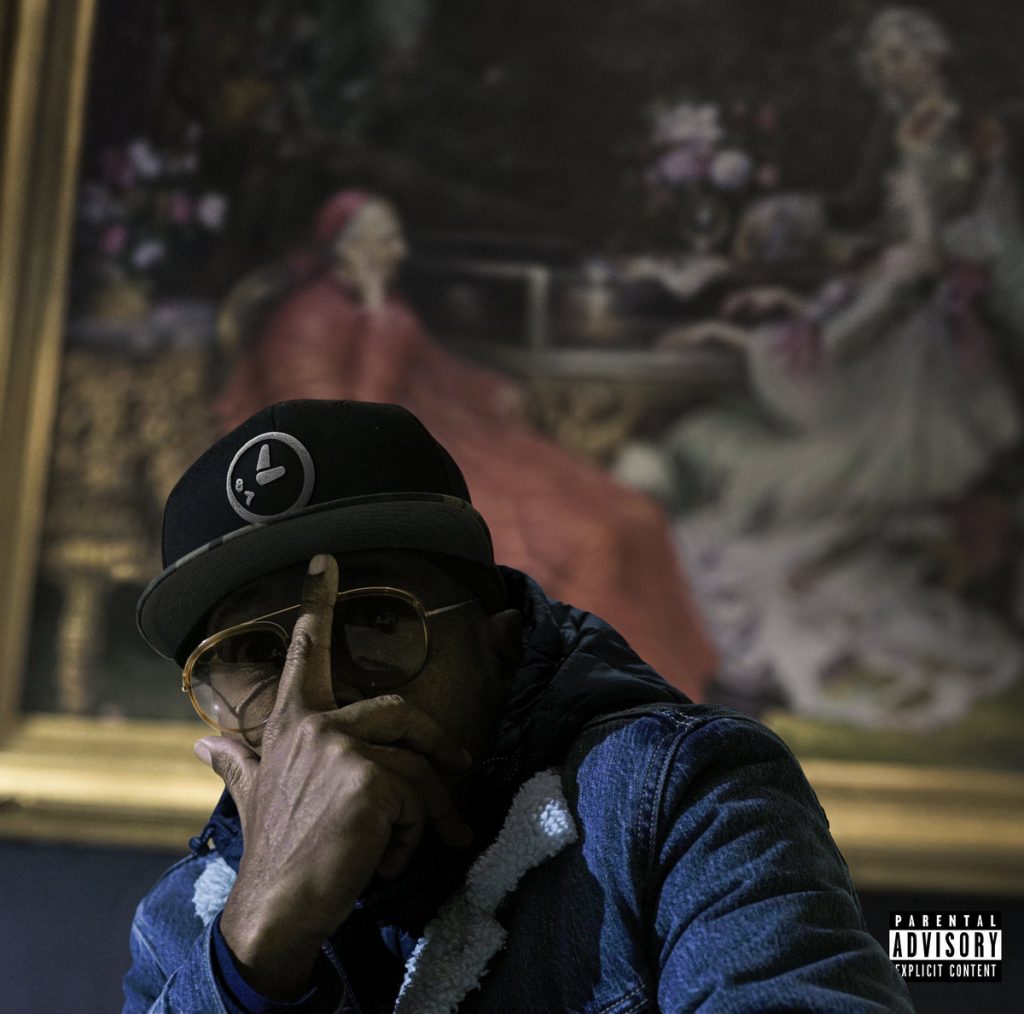
7.)
Artist: eLZhi
Album Title: Seven Times Down Eight Times Up
Label: Glow365
Release Date: September 25th, 2020
Producers: JR Swiftz
Detroit’s “syllable sensei” eLZhi is from a hip-hop school of thought where being lyrical was a pre-requisite. Whether it’s his own material or an entire album dedicated to Nas, he’s never laid down a verse that qualifies as simplistic. His 2016 album “Lead Poison” was a crash course in lyrics, from narratives to imaginative concepts like rapping from the point-of-view of an actual song. His latest album, “Seven Times Down Eight Times Up”, has a positivity to it that flies directly in the face of the banner year that 2020 has been. Additionally, like most of the albums on this list, eLZhi left the music in the hands of the tried-&-true formula of one MC/one producer. Brooklyn beatmaker JR Swiftz held it down for the entirety of the album.
With eLZhi being from Detroit, his beats are usually presented as though Motown sampled. There’s no real change with JR Swiftz behind the boards, the beats are just as boom-bap and soulful as when the producer roster is varied. eLZhi himself is still a master at wordplay, flow, and flipping concepts. On the atmospheric “Hot Winter Cold Summer”, he spits braggadocious rhymes boasting about how his material will be the strongest, no matter the season of the year. One of my favorite tracks is “Light One Write One”, which features the ‘chipmunk soul’ sampling technique with eLZhi rolling one up, lighting it, and letting clever lines escape out of his pen like, “Them other niggas good, but let’s be real / My cup runneth over, they need fresh refills” and the wit with which he starts off the 2nd verse: “I was chiefin’ when I wrote this, forgive me if I go astray / You should play this loud while you twist a blunt or if you roll a J / This one here is for all my West siders who ‘dro sparkin’ / All my niggas off that east side high like Joe Clark and…”
One of eLZhi’s strengths is his storytelling abilities. Whether he’s rapping social commentary in the form of a horror narrative (“THUGGed Out Zombies”) or recounting an experience from his own past (“JASON”), he leaves no detail excluded. Over the forlorn jazzy “Ferndale”, he tells a first-person story about a lost love from his youth. A quality of the production that deserves mention is how there’s either a skit or a sound effect at the end of each track that leads into the next track. His “syllable sensei” moniker is in full-force over the metal snare-boom bap of “Master Class”. On the track “Potential”, eLZhi raps a line which I thought was poignant for the underground scene as a whole: “Cut a little album, get a record deal / My budget is low, I hope you check it still”. Subterranean emcees may have to work harder, but they won’t beg or pander for attention from an audience, and eLZhi is no exception. To snatch a quote from one of my fellow RapReviews writers, “It might be “Seven Times Down, Eight Times Up” but it’s five times a Nine for El.”
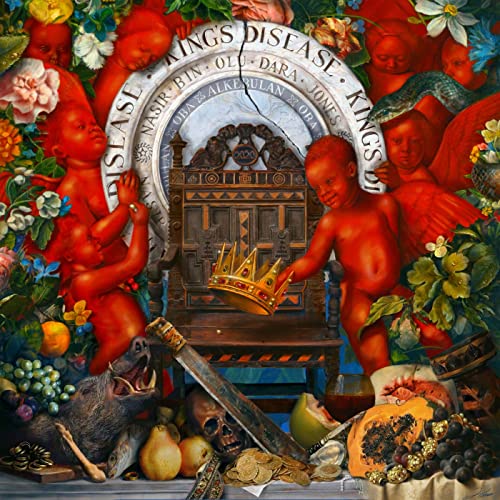
6.)
Artist: Nas
Album Title: King’s Disease
Label: Mass Appeal Records
Release Date: August 21st, 2020
Producers: Hit-Boy
Let me just first get this out of the way: Nasir Jones will never make another “Illmatic”. That said, his subsequent albums, though largely hit-or-miss, should be judged on their own merits, not those of his critically lauded debut. Honestly, with nearly 30 years in the game, and with the success he’s had as a venture capitalist, Nas really doesn’t need to rap anymore. However, it’s a good thing that he does because his name goes hand-in-hand with the word “lyrical”. He may contradict himself in his lines, but his name still carries weight when it’s announced that he’s releasing a project. Rappers and fans alike take something away from his albums after a listen. When he released “The Lost Tapes 2” last year, I copped it on the strength that I remembered from its 2002 predecessor. It was disappointing, but this year’s “King’s Disease” more than makes up for it.
Produced entirely by Hit-Boy, the beats have a sample-based grit to them that allow Nas to interchangeably go from hardcore rap to grown man rap. The lead single “Ultra Black” has a piano sample, dust groove snares, slapping hi-hats, and lyrics containing a strong pro-Black message, as does “Til the War Is Won”. It’s often on the autobiographical tracks where he’s at his most hardcore (like “Car #85” and “Blue Benz”). Some of his collaborative efforts are worth noting as well. On the Anderson .Paak-assisted “All Bad”, Nas gives details of a bad break-up. The topic of relationships is also addressed on the posse cut “Replace Me” which features Big Sean and Don Toliver. The album’s biggest posse cut is “Full Circle”, which reunites all original members of The Firm (Nas, AZ, Foxy Brown, and Cormega).
The title has been abounding throughout the album to the point where I actually wondered if Nas was trying to tell us that he has gout. However, on “The Definition” and “The Cure”, he clarified the album’s title and why he used it as such. I don’t know about royalty, but Nas is certainly one of hip-hop’s most seminal figures and has been for over two decades. And in a testament to just how topsy-turvy the year 2020 has been, this album is actually nominated for a Grammy in the best rap album category. It’s a quality album, no doubt, but considering the usual slew of nominees in that category, Nas’s inclusion was a bit of a (welcome) surprise. But nonetheless, “King’s Disease” is definitely the album for his fans and those who have appreciation for lyricism.
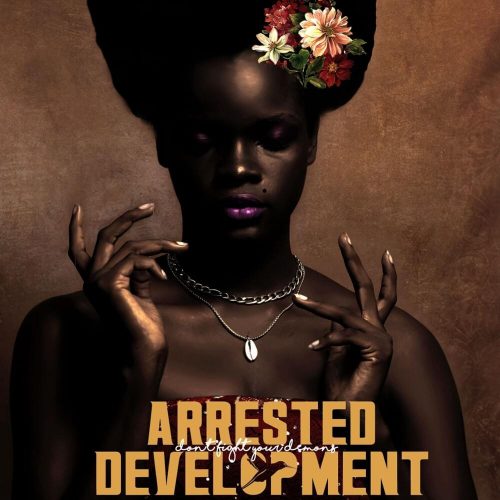
5.)
Artists: Arrested Development
Album Title: Don’t Fight Your Demons
Label: Vagabond Productions
Release Date: September 25th, 2020
Producers: Configa, Cris Acosta, Speech, & MRK SX
Believe it or not, there actually was a time in hip-hop when being positive and quote-unquote ‘conscious’ wasn’t considered corny. Black Star, Common, and A Tribe Called Quest before them all rapped social commentary in a way that made you awe at their skills without them coming off as preachy. They rejected the gangsta rap motifs and macho posturing in favor of both the big and the mundane, but real everyday occurrences. There was also even a time when conscious rap was commercially viable. Enter Arrested Development. Their debut album from 1992, “3 Years, 5 Months and 2 Days in the Life Of…”, went multi-platinum and touched on many issues affecting the Black American community at the time. But that was then, and though the era of the conscious rapper has become something of footnote in hip-hop history, Arrested Development continue to wear it like a blanket.
They’ve released several albums between their debut and now, but this is their first where I’ve listened with intent. Entitled “Don’t Fight Your Demons”, the album veers more towards the political than the personal arena, despite the number of tracks which fit that bill. With the title and the cover image of a Black woman with flowers in her hair, the album is a message to Black America an indictment of White America. Speech himself as an emcee has improved, making more use of wordplay and multi-syllabic bars in crafting his points. The music itself is mostly sample-based, the majority of the beats are courtesy of Configa, with Speech occasionally behind the boards. “Sunset in Ghana” incorporates African rhythms into the beat; “Becoming” is about domestic violence and child abuse; while “Young Americans” depicts a story about a girl Speech met on tour who wants to be American, but without any of the drawbacks.
For a long time now, being a hip-hop artist labeled as ‘conscious’ has been considered a pejorative. Even rappers who fit that category, like Talib Kweli, have tried to distance themselves from it. But considering America’s racial divisiveness in 2020, Arrested Development ran with it instead of putting any space between them and the label. “Don’t Fight Your Demons” sparks conversations on race relations that go beyond the surface of police brutality. The album touches on microcosms of racism as well mass media’s inflammatory hypocrisy in portraying Black people as hostile with anti-social tendencies, while casting White people in a more sympathetic light when they actually do demonstrate such characteristics. For both halves of America, Black and White, Arrested Development urges them to not fight their demons, but teach them who’s boss.
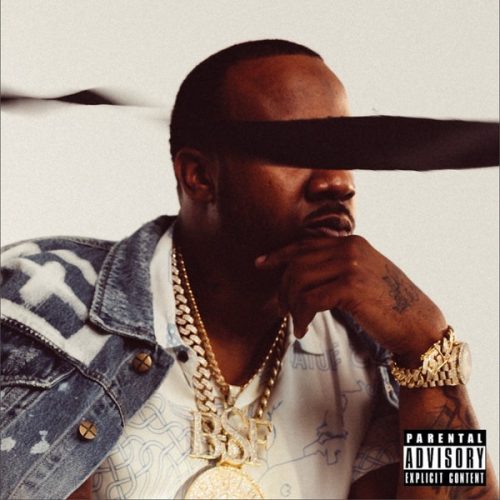
4.)
Artist: Benny the Butcher
Album Title: Burden of Proof
Label: Griselda Records/EMPIRE Records
Release Date: October 16th, 2020
Producers: Hit-Boy
Of the starting line-up of Griselda Records, Benny the Butcher is its youngest member and the most lyrically proficient. All three of them can spit, no question, but Benny attacks the mic each time like he’s got something to prove. Though “My First Brick” is his 2016 debut, “Burden of Proof” is something of an elevation of that record. Everything he’s done before now is indicative of his raw talent, and he often had gritty sounding beats courtesy of Griselda’s in-house beatsmith Daringer or the Alchemist. But “Burden of Proof” has a tweaked sound, as though Benny’s refining himself in terms of making songs. Having the album entirely produced by Hit-Boy is a major factor in that change. Benny’s still the gritty street rapper, but this is the first release he’s done where beats sound less like Griselda and more like Jay-Z’s “American Gangster” period.
Even the opening song, the title track, has celebratory horns reminiscent of “Roc Boys”. And even in 12 tracks and almost just as many guest appearances, the Butcher still dominates. His work ethic and unchallenged lyrical boasts are some of the most entertaining in rap. On “Sly Green”, he raps “I’m on point when my enemies not / I shoot with nobody ’round me like a penalty shot” and later on “Over the Limit” where he says, “That’s me blastin’ through your car auxiliary / They wanna John Lennon me, or John Kennedy”. While Hit-Boy’s beats on this album don’t have a crossover appeal, they certainly have a luster and structure that’s challenged Benny to step up his lyrical flow. The title track didn’t have the customary grit of a Griselda production, but Benny made it work for him, nonetheless.
It’s the same thing with the track “Timeless”, but not in terms of production, but of its features. The Big Sean feature is conceivable, but the addition of Lil’ Wayne I did not foresee. But considering how well the track resulted, any compunctions I had going into the track during the first listen were taken behind the woodshed and put down for good. I mentioned earlier that the Butcher constantly raps as though he’s got something to prove. The title of album, “Burden of Proof”, is emblematic of that as it’s all on him, no matter how many people he has to hold it down right alongside him. Additionally, this was the highest charting album of Benny’s to date. Benny’s worked with various producers before, but this album with Hit-Boy evokes an evolution in him.
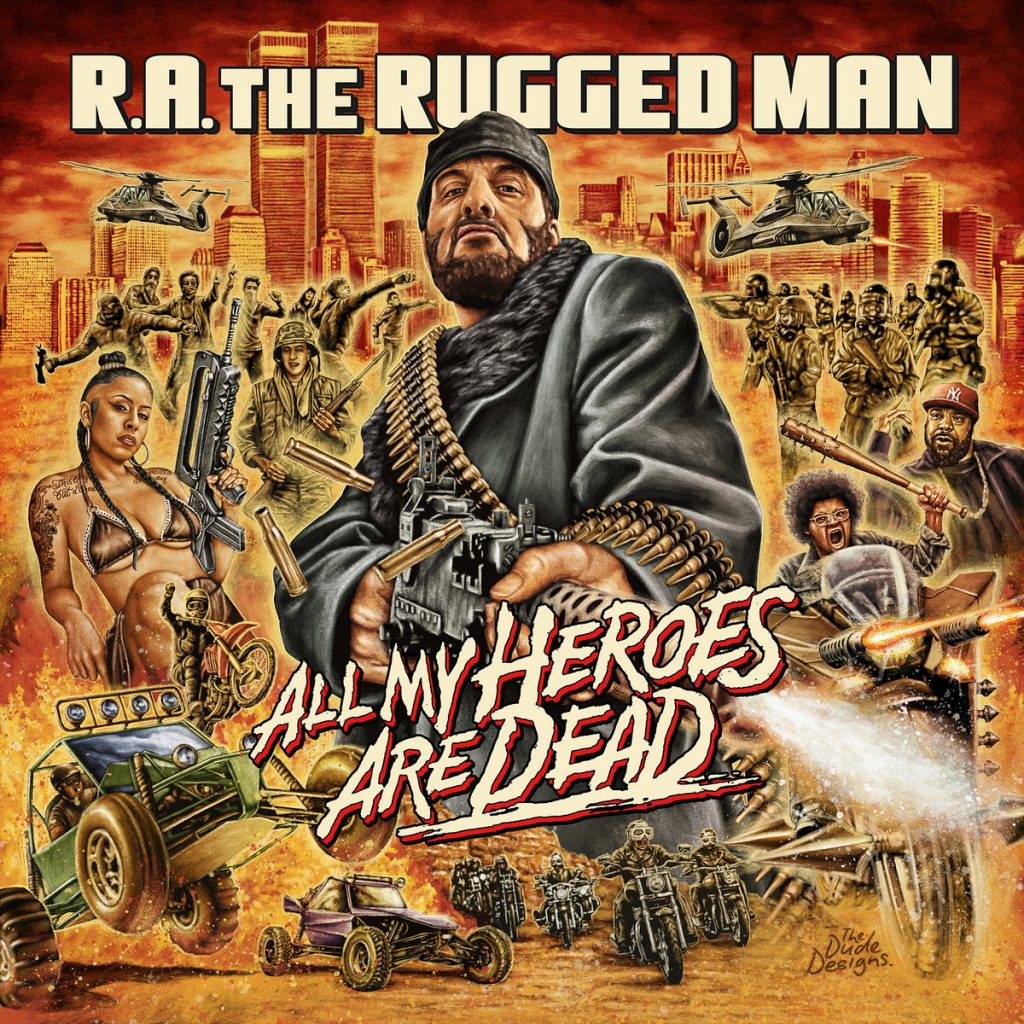
3.)
Artist: R.A. the Rugged Man
Album Title: All My Heroes Are Dead
Label: Nature Sounds
Release Date: April 17th, 2020
Producers: The Kickdrums, Psycho Les, Mr. Green, Prince Paul, C-Lance, Teddy Roxpin, et. al.
Underground hip-hop is often characterized by having low-budget, less polished, and significantly less publicized music than the hip-hop pumped out by the more resourceful major labels. The equivalent to this in the film industry are b-movies. But b-movies and underground rap have much in common: They have glints of quality in their aesthetic that’s given them cult followings. Long Island emcee R.A. the Rugged Man released his 3rd album since 2013 and it has characteristics of both in full. “All My Heroes Are Dead” was like a collection of quality b-movies in rapped form, even the album cover depicts R.A. firing a machine gun in a homage to a poster of 1980s b-movie action flicks. Though, in today’s times, a 22-track album sounds like filler, “All My Heroes Are Dead” is anything but.
Coinciding with the b-movie leitmotif, the Shroom-produced “Dragon Fire” features Ghostface Killah, Masta Killa, Kool G. Rap, & Xx3eme and it has vintage Wu-Tang written all over it. Despite becoming a father since his last outing, parenthood hasn’t dulled R.A.’s trademark irreverence in the least. Even with serious narratives like “Wondering (How to Believe)” and “Angelic Boy”, he still manages to throw in some humor. “First Born” is a dedication to his daughter, but within the last minute, he goes H.A.M. like the Reggie scene from “Bad Boys II” (2003). He displays different flows as well, he goes fast-paced on “All Systems Go” and rails against the lack of direct interaction in the world on “Living Through a Screen (Everything is a Lie)”. One of the best tracks included is the old school posse cut “The Slayers Club” featuring M.O.P., Vinnie Paz, Chris Rivers, Onyx, Chino XL, Brand Nubian, & Ice-T and produced by The Kickdrums, Cenk Coke, and C-Lance.
Also, for those who think hip-hop has no intellectual value, please listen to “Contra-Dictionary”. Over DJ scratches and the jazz sampling courtesy of Mr. Green, R.A. wastes no time in lyrically dancing with dyads in a way that should be taught in cross-cultural communication courses. A student of politics and history, he drops knowledge on “Who Do We Trust?” and “E.K.N.Y (Ed Koch New York)”, respectively. More than lyrical b-movies, “All My Heroes Are Dead” is also a veteran emcee providing today’s wannabe rapper with a crash-course in lyricism as it pertains to flow, precise breath-control, wordplay, and rhyme style. Also, despite being something of a pariah in the music industry (from having a song titled “Every Record Label Sucks Dick” to reportedly defecating on a record executive’s desk), he has the respect of his heroes in the rap game, proving them very much alive after all.

2.)
Artist: Run the Jewels
Album Title: RTJ4
Label: Jewel Runners/BMG
Release Date: June 3rd, 2020
Producers: El-P
In the seven years since their self-titled debut dropped, hip-hop duo Run the Jewels built up bigger success and a bigger reputation together than they ever did apart in their solo careers. Though they have some political leanings, the duo stepped into the spotlight for lyrics consisting of over-the-top, but well-crafted shit-talking rhymes over synth-heavy production from the end of time itself. On every album, Killer Mike and El-P seem to outdo themselves. By “Run the Jewels 3”, they had their music in TV shows, movies, movie trailers, and even car commercials. Their 4th album, titled “Run the Jewels 4” (stylized as “RTJ4”), further builds on their legacy. Released in a year where the term “a world gone mad” barely scratches the surface, Jaime & Mike vent their frustrations and respond accordingly to the chaos around them.
With near-universal critical acclaim, “RTJ4” has been up for many AOTY nominations. The group has never blended genres or made any kind blatant attempts to cross over, and yet they seem to have transcended hip-hop. They never changed their style, but rather expounded on it. Their signature fist-&-pistol gesture became somewhat mainstreamed during Killer Mike’s support of Bernie Sanders. What catalyzed the early release of “RTJ4” was the death of George Floyd. As was planned, the album is extraordinarily strong in its disapproval of racially motivated police brutality. The duo does exactly that on “Walking in the Snow”, featuring Gangsta Boo of Three 6 Mafia. RTJ even had a traditional boom-bap sound and an accompanying satirical video in the form of “Ooh La La” featuring DJ Premier and Greg Nice.
Even with its customary dense sound and more serious themes, “RTJ4” is an album that represents the times we live in. Each one of their albums has thematic similarities to El-P’s Def Jux solo material: Densely rhymed depictions of the apocalypse or other doomsday scenarios. Also, Killer Mike’s growing presence in the political arena is reflective even more so on this outing. Additionally, re-enlisting Zach de la Rocha on “JU$T” (he had a verse on 2014’s “Run the Jewels 2”) was fun to hear, as he spat the kind of verse that probably made RTJ wish they had gone back and rewrote theirs. Considering their track record up to and including this album, I think it’s safe to say that Killer Mike and El-P are like Ghost & Tommy from “Power”: Two best friends (a Black man and a White man) partner up and aggressively plot to take over the urban landscape.
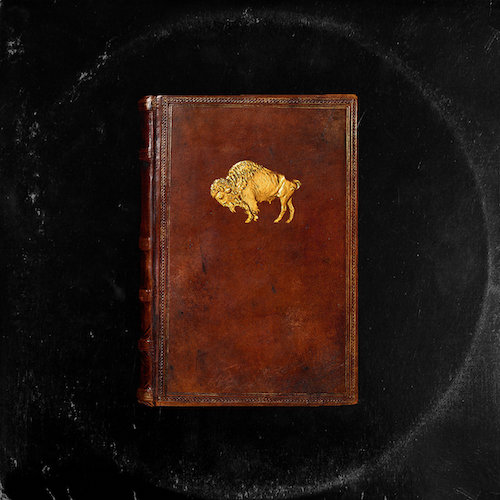
1.)
Artists: Apollo Brown & Ché Noir
Album Title: As God Intended
Label: Mello Music Group
Release Date: July 10th, 2020
Producers: Apollo Brown
The connection between the Detroit beatsmith and the Buffalo mic slayer gives birth to so much soul that it meets the divine mandate connotation of the title. Apollo Brown usually comes correct with his beats, having a sample-manipulative talent with a soulful boom-bap aesthetic. I knew he’d deliver regarding the music, but the lyrics were the biggest surprise. Most people have preconceived notions of female emcees in hip-hop, with many thinking that they can’t get anywhere unless their lyrics have the kind of sexual charge that would put Cardi B and Megan Thee Stallion to shame. Ché Noir is one of the handfuls of such rappers who are the exception. Honestly, it’s sexier when a female emcee can hold her own on the mic without reducing herself to the lowest common denominator.
While this 14-track album has about 5 guest stars, Ché mostly keeps the mic to herself. Perhaps recognizing that having too many cameos on your own album implies that you can’t carry it alone, Ché uses that knowledge to showcase her many different sides as a rapper. She’s got the braggadocio down-pat on “Anti-Social”; social commentary on the “I Gave You Power”-inspired “Blood Is Thicker”; diary introspection on “Daddy’s Girl”; and detailed storytelling on the string-driven “12 Hours”. She also has several tracks where the theme is money (such as “Money Orientated”, “Worth Gold”, and “Follow the Wisdom”), but they’re not anthemic. Instead, their lyrical musings on not getting caught up or even selling out in chasing the money.
It’s fitting that Ché has the track “’94” as the album’s closer. Because not only is 1994 a significant year for hip-hop (with classic debuts released by Nas, Biggie, and OutKast), but also the year of that Ché was born, it’s practically in the stars. “As God Intended” was a musical marriage of vintage soul and well-crafted lyrics that was simply supposed to happen. The album certainly let this listener know just who Che Noir is made me take close notice. Ché instantly became part of the few handfuls of rappers who hold my attention even if their appearance is as a guest emcee on someone else’s album. Apollo Brown also deserves props too, not just for the aforementioned reasons, but for being of consistent quality. Most of the artists he works with shine with him behind the boards and Ché Noir is no exception.

